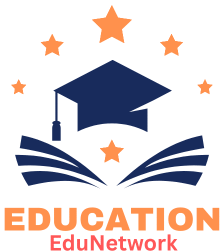In recent years, there has been a rise in the number of remote education consultant employment. These positions provide educators the freedom to work from anywhere in the world. The growing need for personalized learning solutions and the popularity of online courses have elevated the role of remote education consultants to a critical mass. Whether you’re a consultant looking for remote opportunities or a veteran educator looking to switch jobs, you’ll find useful information in this article about remote education consulting.
Can You Explain What a Remote Education Consultant Does?
A remote education consultant is a trained expert who meets virtually with schools, teachers, students, and other organizations to provide advice and strategies. Unlike their on-site counterparts, remote education consultants do business and collaborate via email, video conferencing, and other cloud-based tools.
They are responsible for a wide range of tasks, including curriculum development, teacher training, policymaking, and the integration of educational technology. The greatest perk of being a consultant is the freedom it gives you to work from anywhere in the world and manage clients in different time zones.
For What Reasons Are People Interested in Becoming Remote Education Consultants?
The need for remote education advisors has skyrocketed for many crucial reasons:
-
The demand for experts who can help with the implementation and improvement of online learning environments is on the rise due to the increasing number of educational institutions that are using digital platforms.
-
When it comes to analyzing the effectiveness of curriculum, adopting new educational technologies, or implementing inclusive education, organizations frequently require specific knowledge that internal workers may lack.
-
Using remote consultants may help educational institutions save money on things like travel, office space, and benefits.
-
The ability to work remotely opens up new opportunities for consultants to cooperate with customers all over the globe, expanding their reach and perhaps boosting their income.
Key Responsibilities of a Remote Education Consultant
Specific responsibilities may vary by consultant expertise, but generally speaking, consultants are responsible for:
-
Filling academic needs via the development and improvement of courses.
-
Providing direction on instruments for assessment and teaching that are based on educational technology.
-
Providing teachers with access to online training and education.
-
In support of certification or compliance with educational standards.
-
Drawing up personalized lesson plans for students with exceptionalities.
-
Providing assessments and comments to organizations.
Criteria for Necessary Abilities
Experience in the Field of Education
Most employers prefer candidates with bachelor’s degrees in education, instructional design, curriculum development, or a related field. Your credibility and employability can take a significant boost if you get a Master’s or Doctorate degree.
Working Knowledge
Experience in school administration, teaching, or educational leadership is often required. A large number of very successful education consultants have backgrounds in teaching or administrative roles in educational institutions.
-
Capability Excellent verbal and presentation skills.
-
Skill with an LMS like Canvas, Blackboard, or Moodle.
-
Fluency in using video conferencing software like Zoom, Google Meet, and Microsoft Teams.
-
Skill in analyzing data and determining the effectiveness of programs.
-
Skill with educational policies and practices (such as Individualized Education Programs, Common Core State Standards, etc.).
Employment Opportunities for Independent Educational Consultants
Numerous subfields within the field of education consulting allow for remote employment by qualified individuals:
1. Expert in Curriculum Development
These professionals develop and evaluate educational programs. Partnerships with educational publishers, institutions of higher learning, or edtech companies might provide engaging and practical teaching materials.
2. Curriculum Developer
Typically working for educational institutions or online learning platforms, instructional designers create training materials and courses. They employ instructional strategies and technological tools to their full potential in order to facilitate learning.
3. Special Education Consultant
Consultants in the field of special education often stress the need of inclusive pedagogy. For students with special requirements, such attention deficit hyperactivity disorder (ADHD) or learning disabilities, they provide a hand in developing new methods of teaching.
4. College Admissions Consultant
High school students may get assistance from these advisers with things like writing essays, studying for tests, and applying to colleges. Individuals or online consulting businesses are common clients.
5. Education Technology Expert
Experts in educational technology (EdTech) focus on how to best incorporate technology into classroom instruction. Organizations may rely on their assistance in selecting and implementing top-notch online education tools.
Finding Work as an Online Education Consultant: Where to Look
It could be easier to obtain work as a remote education consultant if you know where to look. Some of the greatest tools and resources are these:
-
Indeed’s job boards: Look for remote education consultant jobs (both full-time and freelance).
-
LinkedIn: A fantastic resource for making connections and learning about remote job opportunities.
-
FlexJobs: Among the many types of remote and flexible jobs offered, education consulting is one of their specialties.
-
Remote.co: Select ads are available for professionals that operate remotely.
-
Freelancing Marketplaces: Consultants may promote their skills on Upwork and Fiverr.
2. Educational Establishments
A great deal of businesses promote remote opportunities on their websites. This includes school districts, online universities, and nonprofit educational groups.
3. Building Relationships
Get involved in online communities centered to education consulting, such as Facebook groups, LinkedIn groups, or forums. Networking is a common pathway to consulting jobs, whether they are freelance or full-time.
Job Prospects for Distance Learning Consultants: Pros and Cons
Pros:
-
Independence: Set your own schedule and work whenever and wherever you choose.
-
Work-life balance: Ability to effectively juggle professional and personal responsibilities.
-
Client diversity: Interact with a wide variety of clients on a wide variety of projects.
-
Earning potential: Independent consultants have more leeway to charge whatever they choose and take on more clients.
Cons:
-
Isolation: The absence of face-to-face contact may lead to feelings of loneliness.
-
Self-discipline: To maximize productivity and time management skills, self-control is key.
-
Inconsistent revenue: Freelancers’ income streams are not always stable.
-
Tech dependency: Requires comfort with using digital tools and platforms.
Starting Out as an Online Education Consultant
Here are the steps you need to take to start your career in this field:
1. Build Your Credentials First
Obtain relevant degrees, enter the teaching profession, and consider pursuing certification in areas such as educational technology, special education, or instructional design.
2. Dedicate Yourself
By honing down on a certain area of expertise, like college admissions, educational technology, or curriculum design, you may differentiate yourself and attract more clients.
3. Create a Profile on the Web
Craft an impressive online portfolio or website that showcases your work, services, testimonials, and case studies. Blog posts on useful information may boost your search engine optimization and bring in new readers.
4. Market Yourself
Post ads for your services on social media, email, and employment boards. One option to demonstrate your value is to provide free webinars or courses.
5. The Online
Sign up with groups like the National Education Association (NEA), the Association for Supervision and Curriculum Development (ASCD), or the International Society for Technology in Education (ISTE) to meet potential clients and stay updated on industry news.
Salary Expectations
The income of remote education consultants may vary greatly depending on their level of experience, specialty, and customer.
-
Starting salary: $40,000 to $60,000
-
Mid-Level: $60,000 to $90,000 annually
-
Executive/Freelancer: $100,000+ yearly (with large contracts or a large clientele)
The hourly rate that freelancers charge might range from $50 to $150, depending on their degree of expertise.
The Future Looks Bright
The job market for educational consultants who work remotely seems to be rather promising. Schools and other educational institutions will have a greater demand for remote advisors as online and hybrid learning become more commonplace. Remote consulting is also growing in popularity as a sustainable career path due to the increased accessibility of education made possible by technological advancements and globalization.
In Conclusion
Remote education consultant opportunities provide a meaningful and flexible career path for educators and professionals who are passionate about improving learning outcomes. Anywhere in the world, with the right qualifications, a good expertise, and a solid online presence, you may establish a successful consulting business. As education evolves, consultants will maintain their influential position in shaping future learning outcomes via distant and innovative means.
